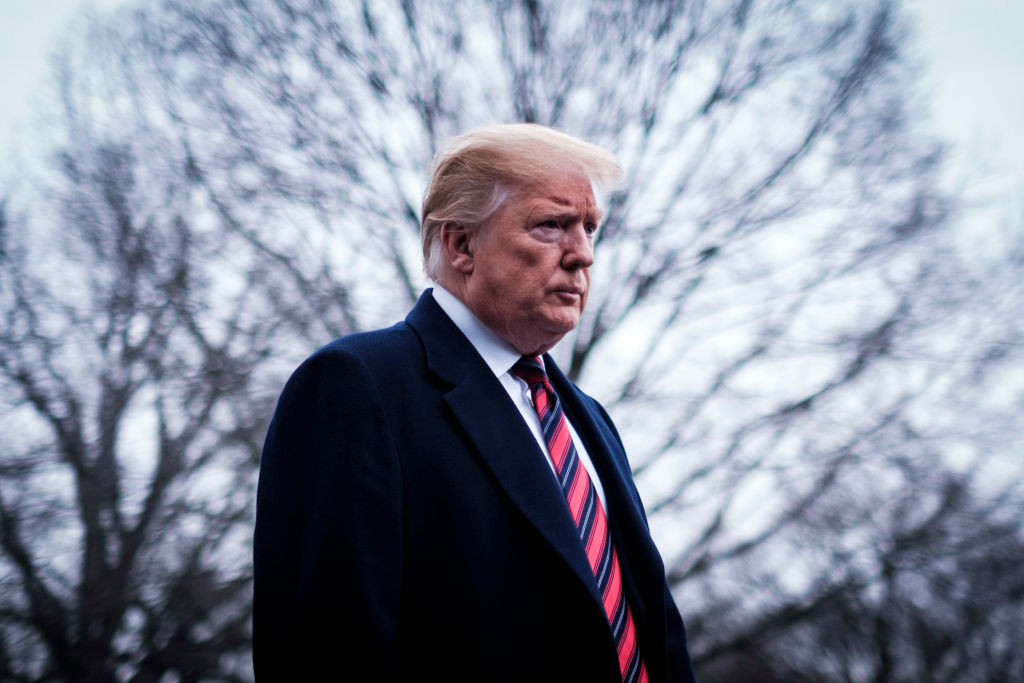If federal prosecutors decide to charge former President Donald Trump, they are likely to wait until after the November midterm elections to do so.
There is a policy at the Department of Justice that bars prosecutors from taking certain steps, such as filing charges, for the purpose of affecting an election, political figure or party, usually 60 days before an election, Bloomberg reported.
Sixty days before this year’s Nov. 8 election is Sept. 10, “which makes it unlikely anything would be announced until after Nov. 8, said people who asked to remain anonymous speaking about potential Justice Department actions,” Bloomberg reported.
The DOJ is currently investigating Trump to determine whether he violated any federal laws, Insider reported.
Prosecutors are looking into whether the former president may have violated the Espionage Act by moving government records to Mar-a-Lago.
The DOJ also has a separate and ongoing investigation into Trump’s action surrounding the Jan. 6, 2021, incursion at the Capitol.
Though the DOJ does have this policy about not affecting elections within 60 days, the department has not always stuck by those rules, according to Bloomberg.
When former FBI Director James Comey revealed that the FBI was looking into Hillary Clinton’s use of a private email server, it was just days before the 2016 presidential campaign.
However, in the current situation concerning Trump, prosecutors have already indicated that it would be very unlikely that they would charge Trump before this election, simply because the investigation is still in very early stages.
Earlier in August, a top counterintelligence official from the DOJ told a federal magistrate judge that the investigation was in very preliminary stages, Insider reported.
Along with the general policy that the DOJ has to avoid affecting elections, Attorney General Merrick Garland has also reinforced this idea in no uncertain terms.
When Garland took over the DOJ, he promised to keep investigations free from political interference.
In May, he even issued a memo clarifying that the policy extended particularly to the 2022 midterms.
“Simply put, partisan politics must play no role in the decisions of federal investigators or prosecutors regarding any investigations or criminal charges,” Garland said in the memo, Bloomberg reported.
Meanwhile, as the situation regarding Trump, Mar-a-Lago and the classified documents found there continues to unfold, Trump has accused the DOJ and FBI of violating his rights. He filed a lawsuit last week, specifically asking for a court-appointed “special master” to read through the material that was seized from his Florida home, Insider reported.
The DOJ then filed a response to that lawsuit, saying that Trump was not entitled to a “special master” because the materials taken from him belong to the U.S. government and not to him personally.
“As an initial matter, the former President lacks standing to seek judicial relief or oversight as to Presidential records because those records do not belong to him,” the Justice Department said, Insider reported.
Meanwhile, Trump continued to criticize the FBI on Truth Social for its handling of the raid at Mar-a-Lago.
“Terrible the way the FBI, during the Raid of Mar-a-Lago, threw documents haphazardly all over the floor (perhaps pretending it was me that did it!), and then started taking pictures of them for the public to see,” he wrote in one post. “Thought they wanted them kept Secret? Lucky I Declassified!”
This article appeared originally on The Western Journal.
























 Continue with Google
Continue with Google